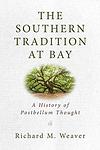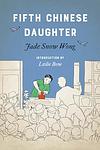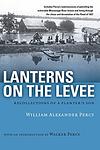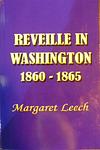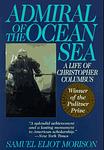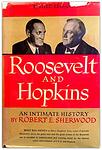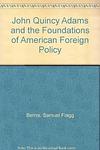The Greatest American "History" Books From 1940 to 1949
Click to learn how this list is calculated.
This list represents a comprehensive and trusted collection of the greatest books. Developed through a specialized algorithm, it brings together 291 'best of' book lists to form a definitive guide to the world's most acclaimed books. For those interested in how these books are chosen, additional details can be found on the rankings page.
Genres
The category of "History" in books refers to the study and interpretation of past events, societies, and cultures. It encompasses a wide range of topics, including political, social, economic, and cultural developments, as well as the lives of individuals and groups who have shaped the course of history. History books can be written from various perspectives and may focus on specific time periods, regions, or themes. They aim to provide readers with a deeper understanding of the past and its impact on the present.
Countries
Date Range
Reading Statistics
Click the button below to see how many of these books you've read!
Download
If you're interested in downloading this list as a CSV file for use in a spreadsheet application, you can easily do so by clicking the button below. Please note that to ensure a manageable file size and faster download, the CSV will include details for only the first 500 books.
Download-
1. Let Us Now Praise Famous Men by James Agee
This book is an in-depth examination of the lives of three tenant families in the South during the Great Depression. The author combines detailed descriptions, journalistic reporting, and poetic prose to capture the harsh realities of poverty, racial discrimination, and the struggle for survival. The book also includes evocative photographs that further illustrate the living conditions and daily lives of the families. The work is a profound exploration of the human condition, offering a raw and unflinching look at the effects of economic and social injustice.
-
2. Hiroshima by John Hersey
This book provides a detailed account of the aftermath of the atomic bombing of Hiroshima during World War II, as experienced by six survivors. The narrative follows the survivors from the moment of the explosion to their lives in the following years. It explores their struggles, their resilience, and the profound physical, emotional, and social impacts of the event, offering a poignant examination of the human capacity to endure and rebuild in the face of unimaginable devastation.
-
3. To the Finland Station by Edmund Wilson
This book is a historical narrative that explores the evolution of revolutionary thought, from the French Revolution through Karl Marx's theories to the Russian Revolution. It focuses on the lives and ideas of key figures in radical political thought, including Marx, Engels, Lenin, and Trotsky. The book culminates in the pivotal moment when Lenin arrives at the Finland Station in Petrograd in 1917, marking the start of the Bolshevik Revolution.
-
4. The Negro Caravan: Writings by American Negroes by Sterling Allen Brown, Arthur Paul Davis, Ulysses Lee
"The Negro Caravan: Writings by American Negroes" is a comprehensive anthology that compiles the works of African American writers from the 18th century through the mid-20th century. The collection includes a broad range of genres such as essays, poetry, drama, and fiction. It provides a deep and diverse representation of African American literary and cultural history, showcasing the struggles, achievements, and contributions of Black intellectuals and artists throughout the years.
-
5. The Mind of the South by W. J. Cash
"The Mind of the South" is a comprehensive exploration of the culture, socioeconomic conditions, and mindset of the American South. The author delves into the historical development of the South, analyzing the impact of slavery, the Civil War, and the subsequent reconstruction on the region's collective psyche. The book provides a critical examination of the South's perceived uniqueness, its racial dynamics, and the enduring influence of its past on contemporary Southern identity.
-
6. The Age of Jackson by Arthur M. Schlesinger, Jr
This book provides an in-depth historical analysis of the political and social changes during the era of Andrew Jackson's presidency in the United States. It explores the significant events, policies, and ideologies of the time, including the rise of the Democratic Party, the influence of the "common man" in politics, and the controversial Indian Removal Act. The book also delves into the economic shifts of the period, such as the battle over the Second Bank of the United States, providing a comprehensive overview of this transformative era in American history.
-
7. The American Political Tradition by Richard Hofstadter
"The American Political Tradition" is a critical examination of the United States' political history from the founding fathers to the New Deal era. The book presents nuanced portraits of key figures, challenging the conventional wisdom about their roles and beliefs, and explores the tensions between democracy and capitalism, the individual and the community, and idealism and power. It provides a thoughtful critique of American political culture and its contradictions, arguing that the country's ideals often mask underlying economic and power interests.
-
8. Fifth Chinese Daughter by Jade Snow Wong
This autobiographical account provides a vivid portrayal of Chinese-American life in the early 20th century through the eyes of a young girl growing up in San Francisco's Chinatown. The narrative follows her journey as she navigates the complexities of traditional Chinese family values and the American way of life, striving for educational and personal independence. The protagonist's struggle to reconcile her dual cultural heritage is compounded by her ambitions, as she seeks to assert her identity and pursue her dreams amidst the expectations of her family and community. Her story is one of resilience and self-discovery, offering insight into the immigrant experience and the challenges of cultural assimilation.
-
9. Lanterns on the Levee by William Alexander Percy
"Lanterns on the Levee" is a memoir that captures the author's life growing up in the Mississippi Delta during the early 20th century. It provides a vivid portrayal of the Southern aristocracy, their traditions, and their struggles with racial tensions and changing societal norms. The memoir also delves into the author's personal struggles with his identity and his search for meaning in life, offering a unique perspective on the American South during a time of significant change.
-
10. Reveille in Washington by Margaret Leech
"Reveille in Washington" is a vivid portrayal of Washington D.C. during the American Civil War. The book offers a detailed account of the city's transformation from a sleepy Southern town to a bustling hub of war activity, filled with soldiers, spies, bureaucrats, and freed slaves. The narrative also explores the social, political, and military life of the city during this tumultuous period, providing a unique perspective on the war and its impact on the nation's capital.
-
11. Under A Lucky Star by Roy Chapman Andrews
"Under A Lucky Star" is the autobiography of a renowned naturalist and explorer, chronicling his thrilling adventures and groundbreaking expeditions across the globe. The narrative captures his early passion for the natural world, his rise to fame as a leader in the field of paleontology, and his most famous exploits in the Gobi Desert, where he made unprecedented dinosaur discoveries. His story is not only a testament to personal courage and determination but also a vivid account of the scientific spirit and curiosity that drove early 20th-century exploration, laying the foundations for our understanding of the prehistoric past.
-
12. The Triumphant Empire: Thunder-Clouds Gather in the West, 1763-1766 by Lawrence H. Gipson
"The Triumphant Empire: Thunder-Clouds Gather in the West, 1763-1766" provides a detailed historical analysis of the British Empire during the crucial years of 1763 to 1766. The book focuses on the empire's growth and expansion while also highlighting the emerging tensions and issues that would eventually lead to the American Revolution. The author offers an in-depth look at the political, economic, and social changes of the era, providing a comprehensive understanding of the factors that led to the empire's downfall.
-
13. Admiral of the Ocean Sea by Samuel Eliot Morison
This book is a comprehensive biography of Christopher Columbus, providing an in-depth exploration of his life, voyages, and discoveries. It delves into his navigation skills, his interactions with indigenous people, and his role in the colonization of the New World. The author, a renowned historian, combines historical facts with a narrative style, offering a detailed account of Columbus's expeditions, his struggles, and his achievements, thus painting a vivid picture of this complex and controversial figure in history.
-
14. Roosevelt and Hopkins by Robert E. Sherwood
"Roosevelt and Hopkins" is a detailed exploration of the relationship between President Franklin D. Roosevelt and his closest advisor, Harry Hopkins, during World War II. The book provides an inside look at the political maneuverings and decision-making processes of the American administration during this crucial period. It paints a vivid picture of the complex personalities of these two men and their roles in shaping the U.S.'s response to the global conflict.
-
15. The Growth of American Thought by Merle Curti
"The Growth of American Thought" is a comprehensive historical analysis of the development of intellectual and social ideologies in the United States, from colonial times to the mid-20th century. The book explores how various factors, including political, economic, and social changes, influenced the evolution of American thought and culture. It provides a detailed examination of the ideas that shaped the nation, the thinkers behind them, and the impact these ideas had on the country's growth and development.
-
16. Henry Adams by Ernest Samuels
This biography provides an in-depth look at the life of Henry Adams, a prominent American historian and member of the Adams political family. It delves into his personal experiences, relationships, and intellectual pursuits, offering a comprehensive view of his contributions to American literature and history. The book also explores his complex personality and his struggles with depression, providing a humanizing portrayal of this influential figure.
-
17. The Atlantic Migration by Marcus Lee Hansen
"The Atlantic Migration" is a comprehensive study of European migration to America from 1607 to 1860. The book explores the reasons behind the mass migration, the experiences of the migrants, and the impact of this movement on both the old and new world. It provides a detailed analysis of the social, economic, and political factors that influenced the migration, and how it shaped the development of America. The author also discusses the challenges faced by the migrants and their contributions to the American society and culture.
-
18. John Quincy Adams and the Foundations of American Foreign Policy by Samuel Flagg Bemis
The book is a comprehensive biography of John Quincy Adams, focusing on his significant role in shaping American foreign policy. It details Adams' early years, his time as a diplomat in Europe, his tenure as Secretary of State under James Monroe, and his presidency. The book also provides an in-depth analysis of Adams' philosophy and strategy in foreign affairs, particularly his vision of America as a beacon of liberty and his efforts to establish the country as a dominant force in the Western Hemisphere.
-
19. Unfinished Business by Stephen Bonsal
"Unfinished Business" is a historical account of the author's experiences and observations as a diplomat and journalist in the early 20th century. It provides an in-depth look at the political climate during that time, including the Spanish-American War, the Russo-Japanese War, and World War I. The author shares his personal insights and interactions with key figures of the era, offering readers a unique perspective on the events that shaped the world during this tumultuous time.
-
20. The Disruption of American Democracy by Roy Franklin Nichols
"The Disruption of American Democracy" is a comprehensive historical analysis of the period leading up to the American Civil War, focusing on the political, social, and economic factors that led to the conflict. The book explores the deep-seated divisions between the North and South, the role of slavery, and the failure of political compromise in preventing the war. It provides a detailed examination of the political landscape of the time, highlighting the actions and decisions of key figures that contributed to the escalation of tensions.
Reading Statistics
Click the button below to see how many of these books you've read!
Download
If you're interested in downloading this list as a CSV file for use in a spreadsheet application, you can easily do so by clicking the button below. Please note that to ensure a manageable file size and faster download, the CSV will include details for only the first 500 books.
Download





